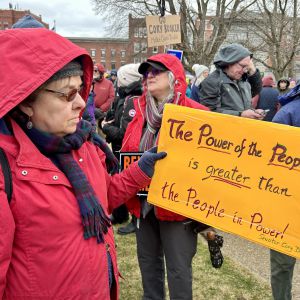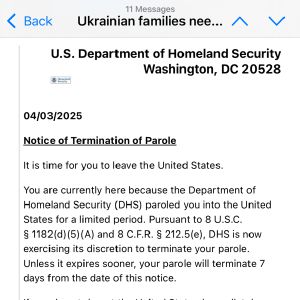From the archives: New Hampshire’s honorable position in national history

NH ratified the Constitution on June 21, 1788, and proposed twelve new amendments. Courtesy—
| Published: 06-08-2024 8:00 AM |
Ashley Miller shares this month’s story with ConcordTV. Watch the episode on YouTube.
On June 21, 1788, New Hampshire became the ninth state to ratify the U.S. Constitution, making it the law of the land, but the Granite State’s approval was not guaranteed.
The state constitutional convention opened on Feb. 13 in Exeter with about fifty members present. John Sullivan presided over the convention as president.
Samuel Livermore, John Taylor Gilman, and Benjamin West laid out rules to regulate the proceedings of the convention. The federalists, planning for the worst-case scenario, put in play several agreements during the convention that allowed them to ensure ratification would not fail.
The first was that individual names would not be attached to votes except in the case of adoption, allowing delegates who had instructions on which way to vote to remain undetected. The second agreement stated that a motion to adjourn would supersede any other motion. Finally, no vote could be taken up again unless the number of delegates present was equal to those present at the initial vote. This allowed federalists to prevent reconsideration of previous votes by simply leaving.
A section-by-section discussion of the Constitution ensued. There were four issues that caused much debate. One, anti-federalists opposed the two-year and six-year terms for representatives and senators, two, they believed that the powers granted to Congress in Article I stripped state governments of their power, three, the creation of a federal judicial branch, and four, opposition to Article IV, prohibiting religious tests for public office.
Sensing that ratification may not pass, federalists voted to adjourn the convention on Feb. 22, the motion carrying by a narrow margin. The convention would reconvene in mid-June in Concord.
In the meantime, federalists continued their newspaper campaigns lobbying in favor of the Constitution. They flooded the press with articles supporting ratification and attacking anti-federalists. Moreover, they set their sights on local elections, seeking to fill out their numbers to gain an advantage.
Article continues after...
Yesterday's Most Read Articles
 After four decades collecting carts, Ricky Tewksbury will retire when Shaw’s closes mid-April
After four decades collecting carts, Ricky Tewksbury will retire when Shaw’s closes mid-April
 Written shooting threat sends Concord High students home early
Written shooting threat sends Concord High students home early
 ‘It’s everything’: In largest rally yet, Trump protestors descend on Concord
‘It’s everything’: In largest rally yet, Trump protestors descend on Concord
 DHS email error causes stress, anxiety for New Hampshire's Ukrainian community
DHS email error causes stress, anxiety for New Hampshire's Ukrainian community
 ‘There was no oversight’: NH child advocate has been a watchdog for children's care. Now, the office is on the chopping block
‘There was no oversight’: NH child advocate has been a watchdog for children's care. Now, the office is on the chopping block
When the New Hampshire convention reconvened on June 18, several new delegates had arrived. A committee was made to compile proposed amendments to the Constitution for Congress’ consideration. This committee consisted of fifteen members, including John Langdon, Josiah Bartlett, Joshua Atherton, and John Sullivan.
The delegates proposed twelve amendments to be considered in order to “remove the fears and quiet the apprehensions of many of the good people of this state and more effectually guard against an undue administration of the federal government.” Included among those twelve amendments were several now familiar notions: no quartering a soldier, the right to a trial by jury, that there should be one representative to every thirty thousand people, and freedom of religion. These very ideas would become established in the Bill of Rights a year later.
A motion was made on June 20 and adopted June 21 that the Constitution be adopted and that the amendments reported by the committee be recommended to Congress. Ratification narrowly passed 57-47 on June 21, 1788.
With its ninth ratification, the Constitution was officially in effect. New Hampshire’s honorable place in national history is even enshrined in the address of the State Archives: 9 Ratification Way.
From the Archives is a monthly column highlighting the history and collection of the New Hampshire State Archives, written by Ashley Miller, New Hampshire State Archivist. Miller studied history as an undergraduate at Penn State University and has a master’s degree in history and a master’s degree in archival management from Simmons College.







 “A Universe of Rainbows”: Warner author releases children’s poetry anthology
“A Universe of Rainbows”: Warner author releases children’s poetry anthology  Comics in Concord: Old School Comic Show bringing hundreds to Everett Arena
Comics in Concord: Old School Comic Show bringing hundreds to Everett Arena Margaritas in Concord holding 40th anniversary bash
Margaritas in Concord holding 40th anniversary bash Evolution Expo bringing wellness to Concord this weekend
Evolution Expo bringing wellness to Concord this weekend
